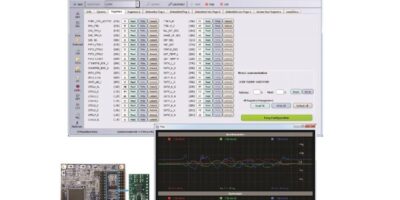STMicroelectronics improves GUI for custom motion-sensing design
To simplify the configuration of the finite state machine and machine learning core (FSM and MLC) logic of STMicroelectronics’ inertial measurement units (IMU), including the recently announced LSM6DSO and LSM6DSOX six-axis modules, STMicroelectronics has introduced the Unico GUI (STSW-MKI109L for Linux, STSW-MKI109M for Mac OSX, and STSW-MKI109W for Windows machines.
FSM logic lets users run gesture and motion-recognition algorithms directly in the sensor for always-on convenience and low power consumption. The MLC implements machine-learning classifiers for real-time always-on motion and vibration pattern recognition.
Using Unico GUI to configure the module’s internal registers and embedded FSM and MLC logic, users can quickly and easily create their own motion-recognition algorithms, explains ST. The GUI also eases combining the module’s accelerometer and gyroscope data with inputs from additional external sensors, such as a magnetometer, for sophisticated context-sensing capabilities.
FSM and MLC in smartphones, wearables, or industrial devices operate as an embedded, low-power engine for gesture and motion recognition and allow user-interface functions and context-aware apps to continue running while the main processor sleeps to maximise battery runtime.
The LSM6DSO six-axis module contains logic for up to 16 independent state machines, each generating a hardware interrupt activated by a specific motion pattern, while the LSM6DSOX contains also the logic to implement multiple-stage decision trees for machine-learning classification.




